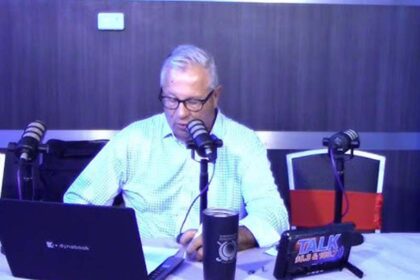The collaboration between john feldmann and ashlee simpson , the renowned music producer and songwriter and the pop-rock singer, is a fascinating chapter in the world of unreleased demos. Their partnership led to the creation of some memorable, but never fully released tracks, showcasing both their creative chemistry and the industry’s intricate process of selecting material for official releases. In this article, we’ll delve into the history of these unreleased demos, the significance of Feldmann’s involvement in Ashlee Simpson’s sound, and the potential of what could have been in her discography.
The Evolution of John Feldmann and Ashlee Simpson in Music
John Feldmann’s career is marked by his unique ability to blend punk rock energy with mainstream pop sensibilities. Known for his work with bands like Goldfinger, Feldmann’s production style is characterized by high-energy, catchy hooks and emotionally charged lyrics. Over the years, his work extended beyond the punk scene, as he collaborated with a range of artists, including Ashlee Simpson, who was transitioning from her early pop fame into a more mature, alternative pop-rock sound.
Feldmann’s approach was instrumental in shaping Simpson’s musical direction during the creation of her second album, I Am Me. The producer’s experience in both rock and pop music was the perfect fit for Simpson, who wanted to distinguish herself from her initial image as a bubbly pop star. This partnership allowed Simpson to experiment with more serious, edgy music while maintaining her commercial appeal.
Ashlee Simpson’s Sound Transformation
Ashlee Simpson’s second album, I Am Me, released in 2005, was a pivotal moment in her career. The album marked a shift away from the bubblegum pop of her debut and embraced a more rock-oriented sound. This transformation was greatly influenced by her collaboration with John Feldmann, who brought his expertise in producing punk and alternative rock bands to Simpson’s music. Some of the most memorable tracks from the album, such as the title track “I Am Me,” showcased this new direction, combining punk rock guitars with catchy pop melodies.
However, not all of the music they created together saw the light of day. Among the unreleased demos that surfaced years later were tracks that hinted at a darker, edgier side of Ashlee Simpson. These demos featured rougher, more experimental versions of songs that would later become polished hits, as well as tracks that never made it past the demo stage.
The Unreleased Demos: A Glimpse Into Simpson’s Musical Potential
Ashlee Simpson’s unreleased demos, particularly those produced by Feldmann, offer a glimpse into what could have been a more aggressive and raw sound for the artist. Among these demos, songs like “Suck To Be You,” “Unreachable,” and “Rule Breaker” stand out. These tracks were never included on any of Simpson’s official albums but remain a fan favorite for those who crave more from the pop star’s rock-infused side.
The demo version of “Murder” also gained attention from fans, though it was never officially released. The song’s haunting, darker tones and raw emotional lyrics were a stark contrast to Simpson’s more mainstream hits, suggesting that there was potential for her to fully embrace an alternative rock identity if she had continued down that path.
Other snippets of unreleased tracks, like “Don’t Let the Dark Take You Out,” showcased a more experimental side of Simpson, hinting at influences that would later shape artists in the alternative rock and pop-punk genres. These demos not only display Simpson’s versatility but also the creative range that Feldmann brought to the table. His ability to craft songs that balance catchy hooks with emotional depth allowed Simpson to explore new sonic territories while maintaining her mainstream appeal.
The Impact of the Demos on Ashlee Simpson’s Career
While many of the demos were never officially released, they served as important stepping stones in Ashlee Simpson’s musical journey. The creative process behind these demos revealed a deeper, more introspective side of Simpson, which resonated with her core fanbase. However, the music industry, with its tight constraints on marketability, ultimately steered Simpson toward a more commercial direction.
The collaboration with John Feldmann likely provided Simpson with a broader understanding of her own musical identity, even if the final product didn’t fully reflect the rawness of the demos. For fans of the artist, the demos are a reminder of what could have been if she had been able to continue working with Feldmann in a more exploratory manner. They provide insight into the challenges artists face when balancing artistic vision with commercial expectations John Feldmann.
Why Are These Demos So Important?
The importance of these unreleased demos lies in their ability to showcase an artist in transition. For Ashlee Simpson, they offer a glimpse into her potential as an alternative pop-rock artist. Had these tracks been released, they could have set her apart from other pop stars of the era, giving her a more distinct, unique sound. For John Feldmann, these demos represent his skill in blending the punk rock influences he is known for with mainstream pop sensibilities, helping artists like Simpson explore new directions in their music.
Ultimately, these demos are important not only because they represent a pivotal time in Simpson’s career but also because they capture the essence of Feldmann’s production style—raw, energetic, and emotionally intense. They serve as a testament to the power of collaboration and the creative possibilities that emerge when artists push the boundaries of their own musical genres.
Conclusion: The Legacy of Unreleased Demos
The unreleased demos by John Feldmann and Ashlee Simpson continue to be a subject of interest for fans and music enthusiasts alike. While these tracks may never receive official releases, their existence serves as a fascinating snapshot of what could have been. For Ashlee Simpson, these demos represent an alternate version of her career, one that might have led her further into the rock and punk music scene. For John Feldmann, they are a testament to his ability to shape the sound of artists across multiple genres.
As we continue to celebrate the creative process behind music, these unreleased demos stand as a reminder of the raw potential that exists within every artist and the power of collaboration in the music industry. Even without a commercial release, the impact of these songs on fans and the legacy they’ve created is undeniable.


